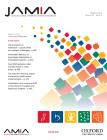 Online sites where doctors and patients can securely share medical records and other information are becoming increasingly popular. But a new study by researchers at the Northwestern University School of Medicine finds that these so-called “patient portals” may serve to widen the racial health gap.
Online sites where doctors and patients can securely share medical records and other information are becoming increasingly popular. But a new study by researchers at the Northwestern University School of Medicine finds that these so-called “patient portals” may serve to widen the racial health gap.
The study found that individuals with lower levels of education were less likely than their more educated peers to use these portals. African Americans were 2.5 times less likely than Whites to access these online tools.
Michael Wolf, a professor of medicine at Northwestern and co-author of the study, stated that “patient portals that offer access to electronic medical records could help individuals better manage their health care and personal needs, but people with less access to and comfort with computers are at risk of not receiving these benefits and will eventually be left behind. It’s a big concern as the patients that already are, perhaps, less engaged in their health and experiencing worse health outcomes may be further marginalized.”
Samuel Smith, formerly at Northwestern but now a postdoctoral fellow at Queen Mary University in London and a co-author of the study, added, “if we now further complicate what it means to be a patient by asking people to be engaged outside the doctor’s office — on the web or by mobile phone — and if these same groups of patients are not as capable or ready to assume these new roles, we may further exacerbate the disparities that already exist.”
The research, “Disparities in Registration and Use of an Online Patient Portal Among Older Adults,” was published on the website of the Journal of the American Medical Informatics Association. It may be accessed here.

